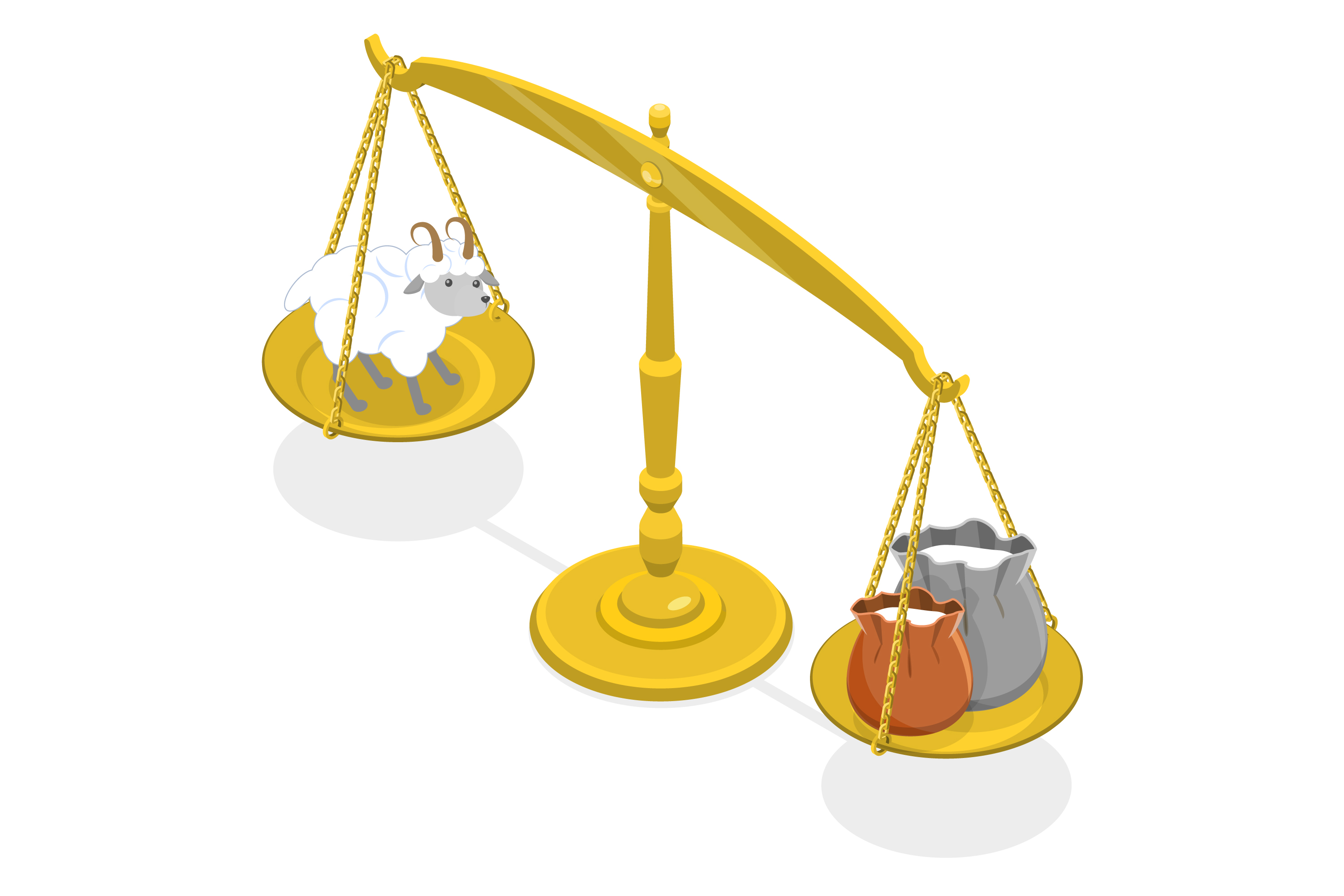Reference: https://fynk.com/en/blog/bartering-guide-successful-trade-exchange
In an era where digital transactions and virtual currencies dominate, the ancient practice of bartering is experiencing a renaissance. This timeless method of exchange, where goods and services are traded directly without the use of money, offers a unique blend of economic savvy, community engagement, and sustainability.

Barter (or Bartering): Definition & Explanation
What is a Barter Deal?
Definition: A barter deal refers to the direct exchange of goods or services between two parties without the use of money or other financial means. Each party trades what they have or can offer for what the other party provides.
Would you like an example?
A graphic designer needs a new website for their office, while a web developer is looking for a new logo for their own company. Instead of paying with money, both agree to exchange their services: The graphic designer creates a logo for the web developer, and in return, the web developer designs a website for the graphic designer. Both get what they need without spending any money – a classic barter deal between businesspeople.
Having understood how a barter deal can function in the modern business world, it’s fascinating to realize that this type of exchange is by no means a new invention. Indeed, the practice of bartering stretches far back into history, to times when money played no role…
The Timeless Art of Bartering: A Journey from Ancient Civilizations to Modern Markets
Long before the invention of currency, a system of exchange flourished across the ancient world, a system rooted in necessity and community. This was the age of bartering, a time when goods and services were traded based on mutual need rather than monetary value. Picture a bustling marketplace in ancient Mesopotamia, the air filled with the scent of spices and the sound of negotiation. A farmer with a surplus of grain might trade with a potter who has crafted more vessels than his family could use. No coins change hands, yet both parties walk away richer for the exchange.

This early form of commerce was not just about survival; it was the foundation of social and economic networks. In the indigenous tribes of the Americas, bartering was a way of life, a practice that strengthened alliances and fostered a sense of community. A hunter successful in his pursuit would share the bounty with a neighboring tribe in exchange for woven fabrics or tools, knowing that this exchange went beyond the immediate goods—it wove a tapestry of interdependence and trust.
As civilizations evolved, so too did the complexity of bartering. The Silk Road, an ancient network of trade routes that connected the East and West, saw silk, spices, and jewels traded for horses, wool, and amber. These were not simple transactions but intricate dances of diplomacy and strategy, where the value was as much in the relationship as it was in the goods exchanged.
 A bartering exchange between to market vendors.
A bartering exchange between to market vendors.
Fast forward to the present, and the spirit of bartering lives on, transformed by technology and global connectivity. In a small town, a graphic designer offers her skills to a local bakery, crafting a new logo and menu design in exchange for catering her daughter’s birthday party. Here, the currency is talent and time, and the outcome is a shared success that money can’t buy.
In the bustling online world, digital platforms have revolutionized the barter system, allowing businesses to trade unsold ad space for essential services, a practice known as media bartering. A startup magazine might offer advertising space to a tech company in exchange for the latest computers and software. This isn’t just a transaction; it’s a partnership, one that allows both companies to grow and succeed without straining their budgets.
These examples, both ancient and modern, illustrate the enduring power of bartering. It’s a reminder that commerce isn’t just about currency; it’s about connection. As we navigate the complexities of the modern economy, the principles of bartering—mutual benefit, trust, and community—offer a blueprint for a more sustainable and interconnected world.
We’ve embarked on a journey through time, tracing the roots of bartering from the dusty roads of ancient markets to the digital highways of the internet age. As we delve deeper into the nuances of bartering, let’s carry with us the lessons from our ancestors: that the best transactions are those where everyone comes out ahead, not just in goods, but in goodwill.
The Financial Fabric of Bartering
Understanding the Financial Tradeoffs
Imagine a local café struggling with cash flow, yet rich in freshly roasted coffee beans and a cozy space. By bartering with a nearby co-working space—offering coffee for their members in exchange for marketing services—the café boosts its visibility without spending cash. This symbiotic relationship illustrates the financial upsides of bartering: conserving cash, utilizing excess inventory, and fostering business growth.
However, there’s a flip side. A florist might agree to a barter deal that seems fair at first but later realizes the traded website design services are valued less than the year’s supply of flowers promised. This scenario highlights potential downsides like difficulty in valuing goods equally and possible tax complexities.
The Financial Upsides of Bartering
- Capital Conservation: Businesses can preserve cash by exchanging goods and services. For example, a café and a digital marketing agency can swap coffee services for marketing expertise, leveraging what they have instead of spending cash.
- Optimized Inventory Management: Overstocked or perishable goods can be traded before they lose value, turning potential waste into opportunity.
- Access to New Markets: By bartering, businesses can reach new customers and sectors without the need for a direct cash marketing budget.
- Enhanced Business Relationships: The act of bartering often fosters stronger business connections and networks.
Potential Financial Downsides
- Valuation Challenges: Determining the fair market value of disparate goods and services can be complex and sometimes lead to perceived or actual inequity in a trade.
- Tax Implications: Barter transactions are taxable, and accurately reporting them requires careful record-keeping, potentially complicating tax filings.
- Limited Scalability: While bartering can be effective on a small scale or for one-off needs, it may not always be practical or scalable for all business needs.
B2B Bartering in the Digital Marketplace
Online Marketing’s New Currency
Consider a startup that offers online project management tools but lacks a robust marketing budget. They reach out to a digital marketing agency and propose a barter: free use of their premium software in exchange for SEO and social media services. Through this exchange, both entities leverage their strengths, enhancing their operations and market presence without denting their finances. This real-life example demonstrates how B2B bartering can be a strategic move, especially for services like online marketing, where the exchange of expertise can often be more valuable than monetary transactions.
Digital Marketplace Opportunities
- Cost-Efficient Expansion: Businesses can expand their service offerings or improve their operational efficiency by trading services, such as cybersecurity for marketing.
- Strategic Partnerships: Bartering facilitates strategic partnerships, allowing businesses to collaborate and innovate together, enhancing their competitive edge.
Considerations in Digital B2B Bartering
- Matching Needs: Finding a barter partner whose needs and offerings align perfectly can be challenging.
- Quality Assurance: Ensuring the traded services or products meet each party’s standards and expectations requires clear communication and sometimes, trial periods.
The Spotlight on Media Bartering
Trading Airtime for Innovation
Media bartering might seem complex, but it’s as straightforward as a local radio station offering airtime to a furniture store in exchange for furnishing their office. This win-win situation allows the radio station to upgrade its environment while the furniture store gains access to advertising, reaching potential customers without direct advertising costs. Such partnerships illustrate the adaptability of bartering, moving beyond goods to include valuable media exposure.
Benefits of Media Bartering
- Increased Advertising Reach: Businesses can gain advertising space in high-visibility mediums without the direct cost, extending their marketing reach.
- Resource Optimization: Media companies can fill unsold inventory with valuable goods or services, making efficient use of available resources.
Challenges of Media Bartering
- Market Value Assessment: Assessing the fair market value of advertising space versus the goods or services offered can be subjective and requires negotiation.
- Contract Complexity: Media bartering agreements may involve complex terms around placement, duration, and content of the advertisements, necessitating detailed contracts.
By focusing more directly on the upsides and downsides and using lists to organize the information, this approach aims to provide clear, actionable insights into the practice of bartering in today’s business environment.
Legal Implications of Bartering
Bartering, while an effective way to manage resources and expand business networks, comes with its own set of legal implications that businesses must navigate to ensure compliance and protect interests.
Key Legal Considerations in Bartering
- Contracts and Agreements: Every barter transaction, whether B2B or between private individuals, should have a written agreement outlining the terms of the exchange, including a detailed description of goods and services, valuation, and delivery terms. This document serves as legal proof of the agreement and can protect both parties in case of disputes.
- Tax Obligations: In many jurisdictions, barter transactions are considered taxable events. The fair market value of goods and services exchanged must be reported as income for tax purposes. Businesses must keep detailed records of all barter transactions, including the agreement and valuation, to accurately report them to tax authorities.
- Fair Market Value: Determining the fair market value of exchanged goods and services is crucial for both contract formulation and tax reporting. This valuation should reflect what would be paid for the item in an open market transaction.
- Regulatory Compliance: Depending on the industry and nature of the goods or services bartered, there may be specific regulations to consider, such as licenses required to offer certain services or restrictions on the trade of specific goods.
Bartering and Intellectual Property
When bartering involves creative work, software, or other intellectual property (IP), it’s essential to clearly define the rights transferred. For instance, a graphic designer trading design work for legal services should specify whether the rights to the designs are fully transferred or if they retain ownership and merely grant usage rights.
Influencer Partnerships: The Modern Barter Economy
The rise of social media has paved the way for influencer marketing to become a vital part of many businesses’ marketing strategies. Bartering with influencers—exchanging products or services for social media exposure—is an innovative way to leverage this new marketing frontier.
Effective Strategies for Bartering with Influencers
- Identify the Right Influencers: The first step is to find influencers whose audience aligns with your target market. For example, a small organic skincare brand might partner with an eco-conscious lifestyle influencer to reach potential customers interested in sustainable living.
- Value Exchange: Determining a fair exchange is crucial. The skincare brand could offer a complete set of their products in exchange for a series of Instagram posts and stories. Both parties should agree on the perceived value of the products and the exposure.
- Clear Deliverables: Specify what is expected from both parties. This could include the number of posts, content format, usage rights for the content, and any specific messaging or hashtags to be included.
- Legal Considerations: Although less formal than traditional contracts, agreements with influencers should still outline the terms of the barter, including any disclosure requirements by regulatory bodies like the Federal Trade Commission (FTC) in the United States, which mandates that influencers disclose sponsored content.
Examples of Successful Barter Deals with Influencers
- Fitness Equipment for Workout Content: A home fitness equipment brand might provide a high-profile fitness influencer with their latest treadmill in exchange for a series of workout videos that feature the product. This not only showcases the equipment in action but also aligns the brand with the influencer’s trusted image.
- Travel and Accommodation for Destination Promotion: A boutique hotel could offer a stay to a travel influencer for detailed blog posts, Instagram stories, and a review. The influencer gets a free vacation, while the hotel gains exposure to a broader audience, including engaging content that showcases the experience of staying at the hotel.
By carefully navigating the legal landscape and strategically partnering with influencers, businesses can harness the power of barter to enhance their marketing efforts, expand their reach, and build valuable partnerships in today’s digital economy.
Everyday Bartering: From Businesses to Backyards
Bartering isn’t just for ancient markets or corporate boardrooms; it thrives in everyday interactions, blending the personal with the professional, and fostering community ties along with business networks.
B2B Examples
- Local Service Exchange: A local print shop offers to produce menus for a nearby restaurant in exchange for catering services at a corporate event. This exchange not only saves money for both businesses but also strengthens community bonds and mutual support among local enterprises.
- Professional Services Swap: An accounting firm needing a new website might barter with a web development agency looking for financial advisory services, showcasing a direct exchange of professional expertise that benefits both parties without involving direct payments.
Private Individual Examples
- Skill-for-Skill Trade: A piano teacher offers lessons to a neighbor who is a chef, in exchange for a series of cooking classes. Such trades allow individuals to enrich their lives and learn new skills without the financial burden.
- Goods Exchange: Community members might organize swap meets where items like books, clothing, and household goods are exchanged. These events promote sustainability and reuse, creating a platform for community engagement.
Strategies for Successful Everyday Bartering
- Clear Communication: Establish clear expectations and outcomes for the barter to ensure both parties understand and agree on the value exchange.
- Documentation: Even informal trades can benefit from a simple written agreement, detailing the exchange to avoid misunderstandings.
- Fairness and Flexibility: Approach bartering with an open mind and a focus on fairness, being ready to adjust terms if the initial agreement does not meet expectations.
Mastering the Art of Barter Deals
Successful bartering requires more than just a willingness to exchange goods and services; it necessitates a strategic approach to negotiation, valuation, and relationship-building.
Key Strategies for Successful Barter Deals
- Valuation: Determine the fair market value of what you’re offering and what you’re receiving. Use online marketplaces, professional appraisals, or industry standards as benchmarks to ensure fairness.
- Negotiation: Approach negotiations with a win-win mindset, aiming to achieve a balance where both parties feel valued and satisfied. Be clear about what you can offer and open to understanding the needs of the other party.
- Build Relationships: View each barter deal not just as a transaction but as an opportunity to build a long-term relationship. Satisfied barter partners can become regular collaborators or refer new opportunities.
- Legal and Tax Considerations: Understand the legal and tax implications of bartering. Consult with professionals to ensure that your barter agreements are compliant with local laws and tax regulations.
The Future of Bartering
As we’ve explored the multifaceted world of bartering, from its historical roots to modern applications, it’s clear that this ancient practice remains a vibrant part of today’s economy. Bartering offers a unique combination of financial pragmatism, community building, and sustainability. By embracing the principles of fairness, transparency, and mutual benefit, individuals and businesses can leverage bartering as a powerful tool for growth, innovation, and connection.

